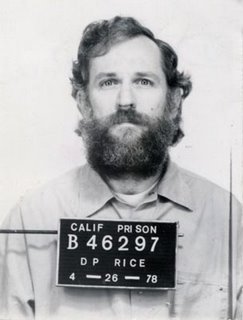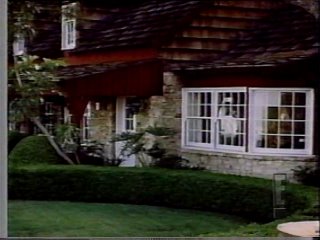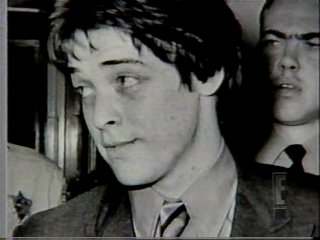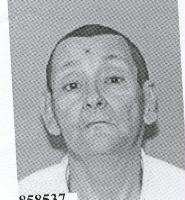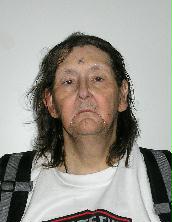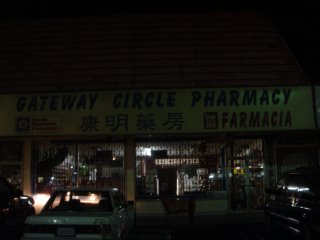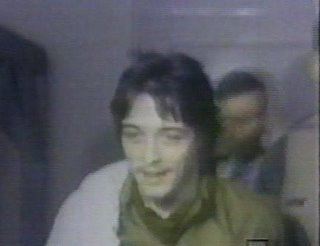
Robert K. Beausoleil
(CDC # B-28302, Oregon # 11100535)
2500 Westgate
Pendleton, OR 97801
February 28 , 2006
Mr. Terry Farmer, Commissioner
California Board of Parole Hearings
1515 K Street, Ste. 600
Sacramento, CA
Dear Mr. Farmer,
This letter is in reference to the parole hearing you chaired at the SACCO Unit on December 7, 2005.
During my parole hearing on this date, it seemed to me that you, and Deputy-Commissioner Garner-Easter as well, made a genuine effort to give me a fair hearing. For the most part, and in spite of severe shortcomings with the physical method we were forced to rely on for communication, I feel that you conducted the hearing in as professional a manner as possible under the circumstances. This made it doubly shocking for me when the course of my hearing was derailed by a matter I was not – and speaking to the point of this letter, I could not have been – suitably prepared to address.
My purpose in writing this letter is to make a formal request to the Board of Parole Hearings, through your office as Chief Counsel for the BPH and presiding Commissioner for my December 7th parole hearing:
I respectfully request that my hearing be reconvened for the limited purpose of allowing me an opportunity to respond properly to information that was introduced, much to my surprise, while the hearing was in progress. From my point of view the hearing was fair and on track up to that point; I ask only for the opportunity to appropriately address the one issue, keeping the current documentation and record of the hearing intact. If the procedures of the BPH do not permit a hearing to be reopened, in lieu of this I request that a new hearing be ordered.
I understand that the Board of Parole Hearings no longer has an administrative appeal process. Another BPH commissioner explained to me, however, that under extraordinary circumstances, such as an incomplete record or a gross technical error of some sort, a new hearing will be ordered. It is my belief, and my hope, that the extraordinary circumstances that occurred during my hearing are sufficient qualification for such relief.
The document upon which the outcome of my hearing pivoted, resulting in denial of parole, was – to the best that I’ve been able to determine – a computer printout of a portion of a page on a website. This document was apparently attached to a letter that had been placed in the confidential section of my CDC records. While the letter legitimately qualifies (presumably) for placement in the confidential file, it is my belief that the computer printout attached to it – because it was derived from a publicly accessible website – does not. Again, it was the printout from the website, not the letter, that the panel relied upon in denying parole.
This contravenes one of the most basic BPH regulations, the one specifying that a prisoner will be provided with ample opportunity (a minimum of ten days prior to the hearing) to review all non-confidential information that the hearing panel may rely upon in arriving at a decision.
I did not learn of the document at issue until midway into my hearing. Even then, due in large part to the limitations of the telephonic equipment (I was able to understand only about eight words in ten over the speakerphone), it was nearly impossible to have some sense of what you were looking at and the effect it was having on the course of my hearing. Had I been advised as to the nature of the information in advance of the hearing as procedure enjoins, I could have prepared a response that may have resulted in a vastly different interpretation than the one you arrived at.
For a person in my position, it is difficult to resist leaping to the suspicion that someone may have contrived to attach non-confidential information to a confidential letter as a way of circumventing the procedure. It’s not much of a leap, actually. I would be hard pressed to think of a better way to obfuscate the issues for the hearing panel, while putting me off balance and ill prepared to respond effectively. Of course, this is only speculation. I do wish to avoid getting hung up in a side issue. The only reason I mention this is because it could go to the veracity of the information itself, and may bear some looking into on that point alone.
Speaking to the information itself, it was designed to be misleading. Although I’ve not actually seen the document, as you know, from what I’ve gathered it comprises pieces of a web page that were assembled in such a way as to lead to the most prejudicial interpretation possible. Given that the larger context was omitted, it is understandable that you might arrive at the conclusion you did. However, basing an honest decision on dishonest information does not add up to a fair result.
Moreover, the interpretation drawn from this misleading information lacks any basis in fact. As a musician/composer, a visual artist, a writer, and a technologist, I have accumulated a fairly extensive history of having produced, and published, work in various fields of endeavor. Over the considerable number of years that I have been engaged in these activities, I have done so in conformance with institutional rules, and I have never attempted to trade on the Manson connection or exploit any criminal notoriety for personal gain. I have long held the belief that doing so, or authorizing anyone else to do so in my name, would be unethical.
One thing I find particularly troubling about the record of my hearing is the way in which the misleading information came to be insinuated into the hearing process. Early in the hearing (pg. 11 of the transcript) both you and Ms. Garner-Easter stated that there was recent confidential information in my case file, but that it did not appear to be anything you would base your decision on. Then, at about the middle of the hearing (pg. 74), Deputy D.A. Patrick Sequeira interjected to specifically bring your attention to the inflammatory web site information that was attached to the confidential letter. Mr. Sequeira’s personal knowledge of specific information in the confidential file is, to say the least, a puzzling irregularity. It has always been my understanding that both a prisoner’s attorney and the attending county D.A.’s representative participate in parole hearings in the capacity of witnesses, and are not actually considered to be functioning members of the hearing panel. Unless there has been some change in the regulations that I’m unaware of, neither legal counselor is permitted direct access to the confidential records without a court order.
I’m sorry that I did not have the wits to respond better when the direction of my hearing went on this unexpected tangent. I regret also that I did not request a postponement for a few months so that my attorney could attend the hearing. The inability to see what you were looking at, or to hear properly, or even to have the benefit of advice from an advocate who was in the hearing room, put me at an extreme disadvantage.
As it was, I did not fully comprehend the nature or import of the document that became the focal point of the hearing until you rendered the panel’s decision. And of course, by that time it was too late for me to speak to it.
Please allow me an opportunity to properly address the significant concerns you candidly expressed at the end of the hearing. In behalf of not only myself but of all my loved ones and friends who want very much to believe that the system can work, and that there is some hope I will be allowed to join them one day, I beseech you to reopen my hearing for this limited purpose. While doing so may not yield a different end result, it is likely that it will at least be based on more reliable information.
Yours sincerely,
Robert K. Beausoleil
cc: Jade Leong, Records Analyst
Carolyn Hagin, Attorney


